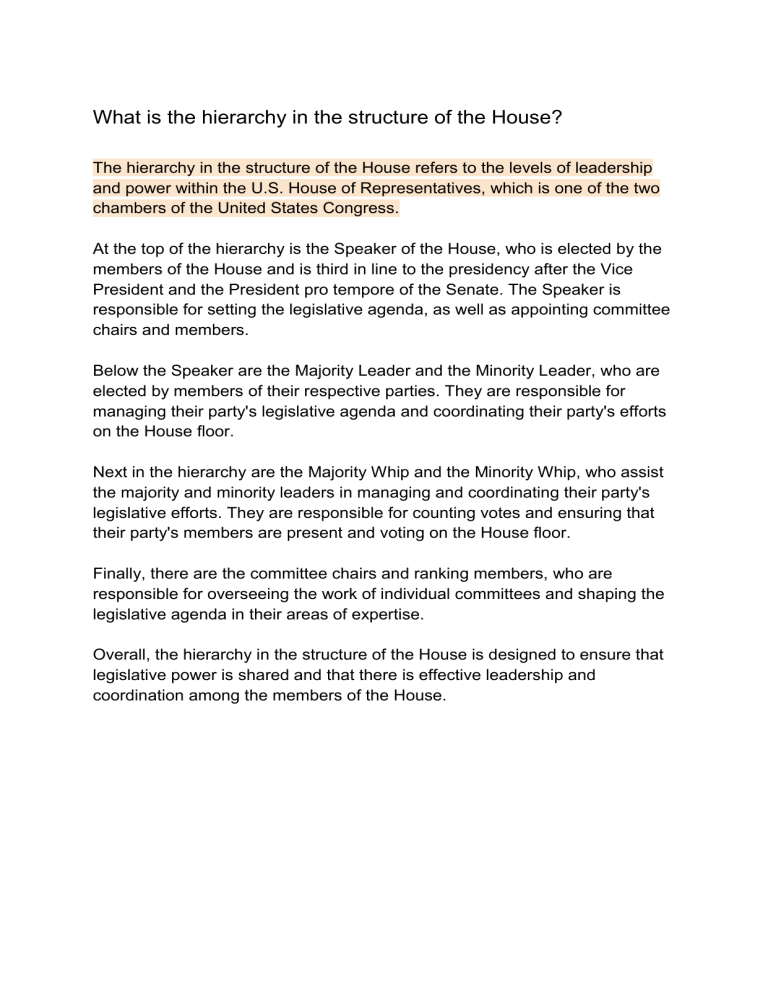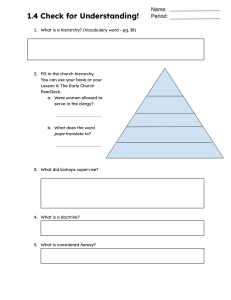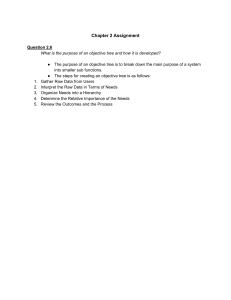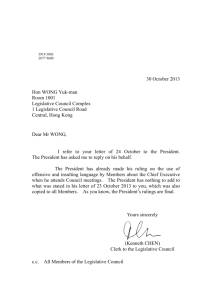
What is the hierarchy in the structure of the House? The hierarchy in the structure of the House refers to the levels of leadership and power within the U.S. House of Representatives, which is one of the two chambers of the United States Congress. At the top of the hierarchy is the Speaker of the House, who is elected by the members of the House and is third in line to the presidency after the Vice President and the President pro tempore of the Senate. The Speaker is responsible for setting the legislative agenda, as well as appointing committee chairs and members. Below the Speaker are the Majority Leader and the Minority Leader, who are elected by members of their respective parties. They are responsible for managing their party's legislative agenda and coordinating their party's efforts on the House floor. Next in the hierarchy are the Majority Whip and the Minority Whip, who assist the majority and minority leaders in managing and coordinating their party's legislative efforts. They are responsible for counting votes and ensuring that their party's members are present and voting on the House floor. Finally, there are the committee chairs and ranking members, who are responsible for overseeing the work of individual committees and shaping the legislative agenda in their areas of expertise. Overall, the hierarchy in the structure of the House is designed to ensure that legislative power is shared and that there is effective leadership and coordination among the members of the House.




